Watch "Honey I Shrunk the Kids" with Your Dad This Weekend
Or he won't notice if you fall in his cereal
Honey, I Shrunk the Kids was one of my favorite movies growing up, and probably played a huge role in my developing interest in science fiction. While I am not a father and don’t plan on becoming one, I do have a father, and the theme of fatherhood stands out strongly when I revisit this film as an adult.
I know what you’re thinking: a “baby” ant (that isn’t a larva?) befriending human beings? Humans riding ants? Yes, that part is stupid and was probably added later (since it contradicts the premise that the “shrink ray” doesn’t reduce density, just contracts atoms). Set all that aside, because the rest of the screenplay is impressive. You wouldn’t know it’s the Frankenstein brain baby of five different screenwriters.
Unlike hard science fiction, the premise is not the main character. Rather than focusing on an alien planet or a scientific hypothesis, Honey, I Shrunk the Kids is a vehicle for sending characters on a journey of self-discovery and growth.
The very set design tells a clear story. The Szalinskis live in a tiny Victorian house that could use some love: the paint and trim are dingy, the attic (which we see at near-microscopic detail) is coated in dust, and even the appliances are quirky (the cat phone, the solar-powered coffee machine, etc). It’s an important plot point that the back yard is overgrown and little cared-for, much to the chagrin of the neighboring Thompson family. The Thompsons’ yard is perfect. Their house, also a Victorian, is painted in bright, fresh colors, and the interior is decorated with up-to-date floral wallpaper.
Similarly, the characters are well-developed. The moment they are introduced, the audience knows exactly what each of them wants.
We are introduced to Wayne Szalinski in his attic. He is obsessed with building a shrink ray. Over time, we learn he’s quit his job to pursue this dream, which has caused tension in his marriage (the missus is sleeping at her mother’s house when the movie begins). Most of his colleagues are skeptical about his theory. As he fires up the device, he says aloud, “This will put us right up there with… the first man in space!” Their little dog Quark (named after the smallest particle in the universe) barks. More grimly, Wayne mutters, “The first dog in space.” This is a dark reference to Laika, the first dog in space, who was burned alive upon re-entering Earth’s atmosphere. Wayne activates his shrink ray, which fails to shrink an apple, instead causing the apple to explode.
Wayne’s son, Nick, looks just like his father and dresses like him, too — he’s wearing a bathrobe to mimic his dad’s lab coat. He carries a calculator around and tries to work “smarter,” not harder. He also interrupts his dad with his childish theories on cracking the problem of shrinking. Wayne barely listens, mumbling, “Go help your sister.” This establishes Nick’s desires with impressive efficiency: he wants his father’s camraderie, and can’t even get his attention.
Wayne’s trendy teenage daughter, Amy, is a bossy big sister, overestimating her ability to run the house while Mom is gone. Her heart’s desire is a popular boy whose call she’s expecting. All her plans for the future revolve around this.
Their neighbor, “Big” Russ Thompson, is introduced feet-first, as these jut over the edge of his bed while he sleeps. This and several other context clues imply the screenplay wanted Russ to be a huge, imposing man, but we can’t blame the casting director for going with Matt Frewer, who disappears into his character so perfectly that you don’t even think about the fact that he’s standing on a box. Big Russ’ obsession is ushering his son, “Little” Russ, into manhood. His way. His tireless attempts at making a new man in his own image are thwarted by the inconvenient fact that his son is a separate, distinct human being.
“Little” Russ Thompson is not the imposing figure that his father is. He avoids telling his father that he was cut from the football team for being too small. He isn’t excited to go camping or fishing. He is masculine in his own way, however: he desperately wants the attention and affections of Amy.
Ron Thompson has hypermasculine interests — sports, camping, home defense, and hazing smaller boys like Nick — yet his exuberant troublemaking also seems to make his father feel nothing but frustration. It’s ironic both that Big Russ has the son he wants in Ron, yet still isn’t content, and that Big Russ chases after Little Russ for quality time rather than spend it with the younger son who would enjoy it.
Even Quark the Dog has an arc ahead of him. When the Thompson and Szalinski kids are accidentally shrunk, swept into the garbage and put out on the curb, only Quark can still hear them, but he’s too scared of the Thompson cat to go outside.
While Wayne and Big Russ are foils in many ways (body type, interests, personality) they are both absent and somewhat clueless when it comes to the children they love. Even while present, they are distant. Even Mrs. Szalinski, who technically hasn’t abandoned the family, is still spending time away from them. A dozen superficialities keep the characters estranged despite their desire to come together; the Szalinskis initially assume their missing kids are just at the mall; Big Russ can’t bring himself to cancel the fishing trip just because he can’t find his sons, so he instead says his wife is on her period.
Yet we know from the beginning that Big Russ is not the toxic, overbearing monster man that most fathers in media are lately. When Big Russ notices Little Russ watching Amy with longing, his shoulders slump in pity. He wants to help his son. His attempts at doing so simply come off as oafish and insensitive. When the miniscule kids stumble upon a cigarette butt, the Thompson boys discuss that their dad only smokes when something is really worrying him. Then they realize they are what their dad is worried over.
Nicky’s insecurities over being overlooked by his dad come to a sharp point in one of the movie’s most memorable scenes: he’s fallen into Wayne’s breakfast cereal and is screaming, “Don’t eat me!” — but still his father doesn’t hear him. The main obstacle of the film (getting the kids back to normal size) is finally overcome when Wayne whips out a magnifying glass and carefully watches Nick’s pantomime. Nick does know how to fix the shrink ray after all.
The other arcs are not neglected. With the help of his gentle wife, Big Russ gradually realizes he has flaws. Little Russ steps into the role of an ideal man from the moment the kids are lost in the back yard: facing the unknown, taking the lead, and protecting others. Amy updates her criteria for “ideal man.” Quark barks at the cat.
Because isolation and antagonism are themes in Honey, I Shrunk the Kids, reconciliation is necessarily a theme as well. Wayne’s wife realizes her and her husband’s careers are less important than being with their kids. Russ earns his father’s respect as a fellow man. Wayne and Russ discover mutual respect for each other. Nick and Ron bond over that stupid ant. If you can get your dad to watch this one with you, talking about nothing in particular, just appreciate that you’re together and know that if you were ever a quarter of an inch tall in the back yard, he would probably be quietly concerned, if only because he doesn’t want your mother to find out. Other things to appreciate: costume design, practical effects, stop-motion animation, Rick Moranis, and James Horner.





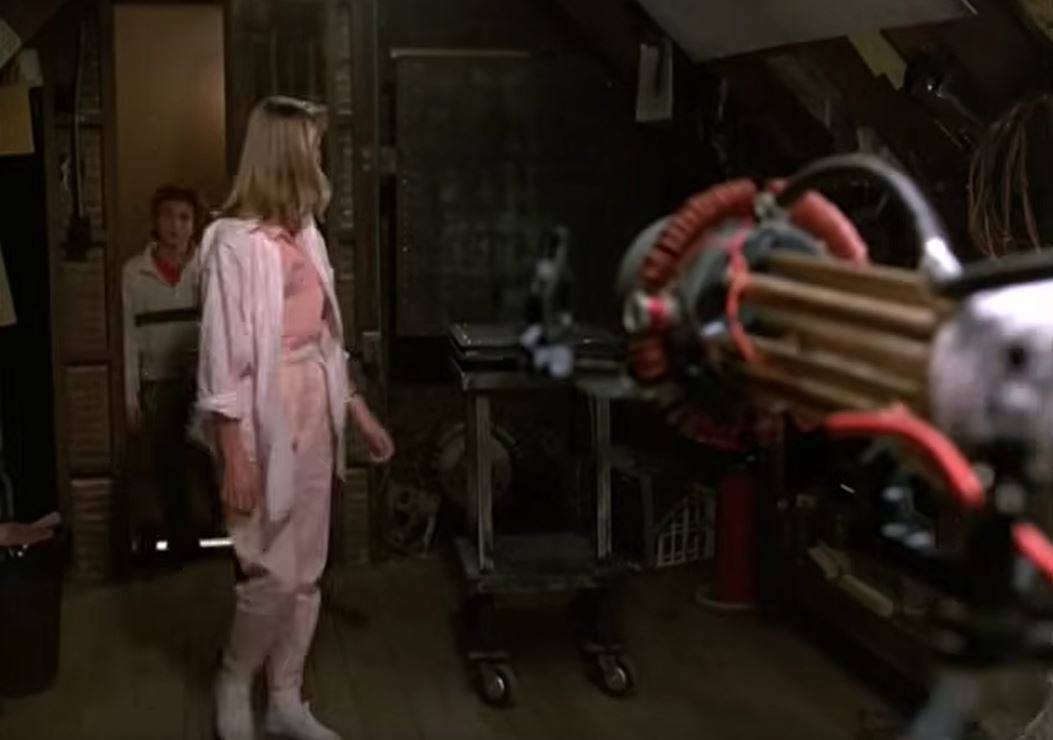
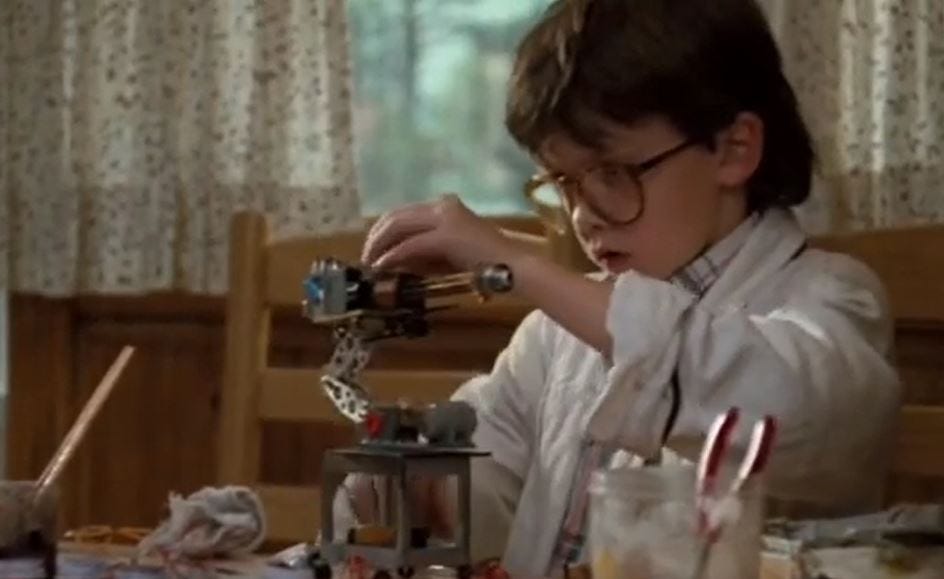
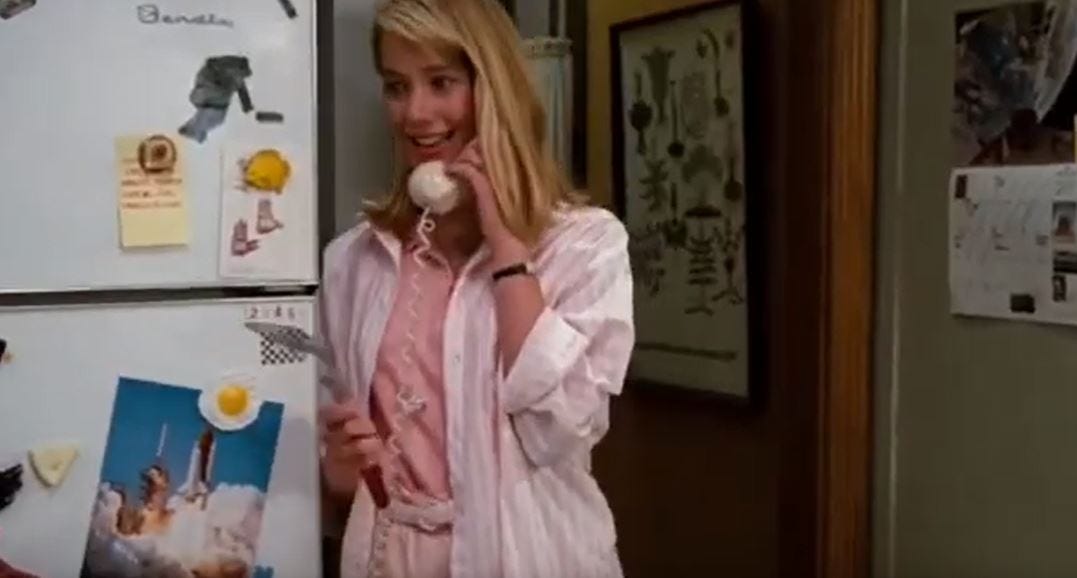
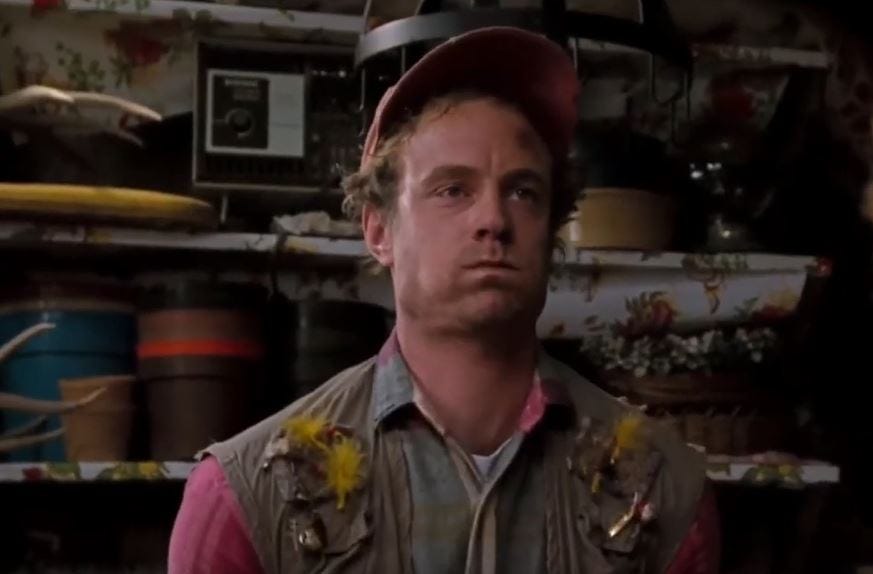
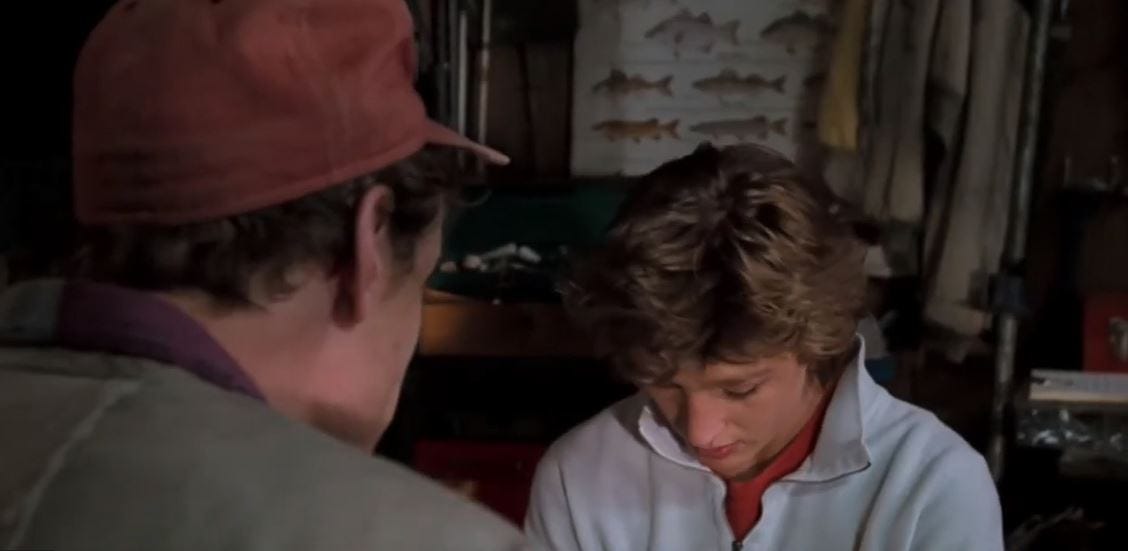
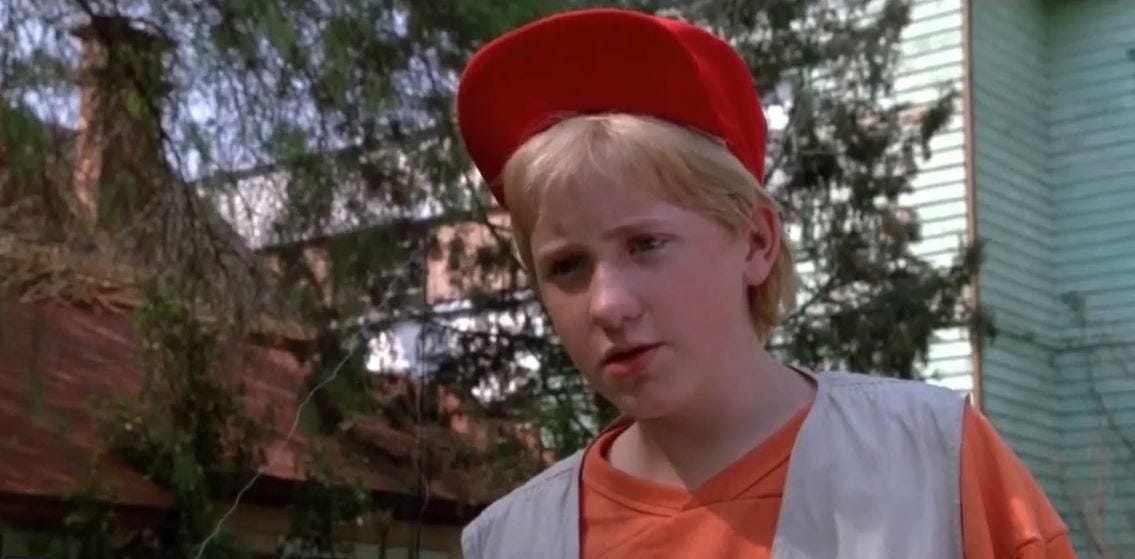

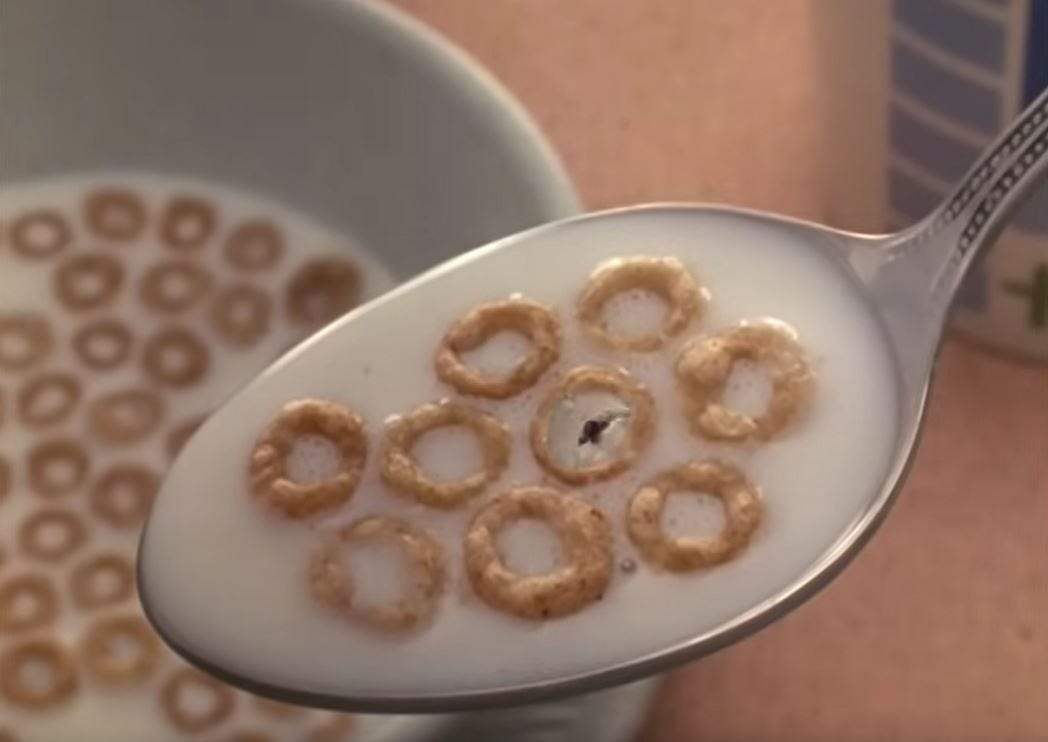
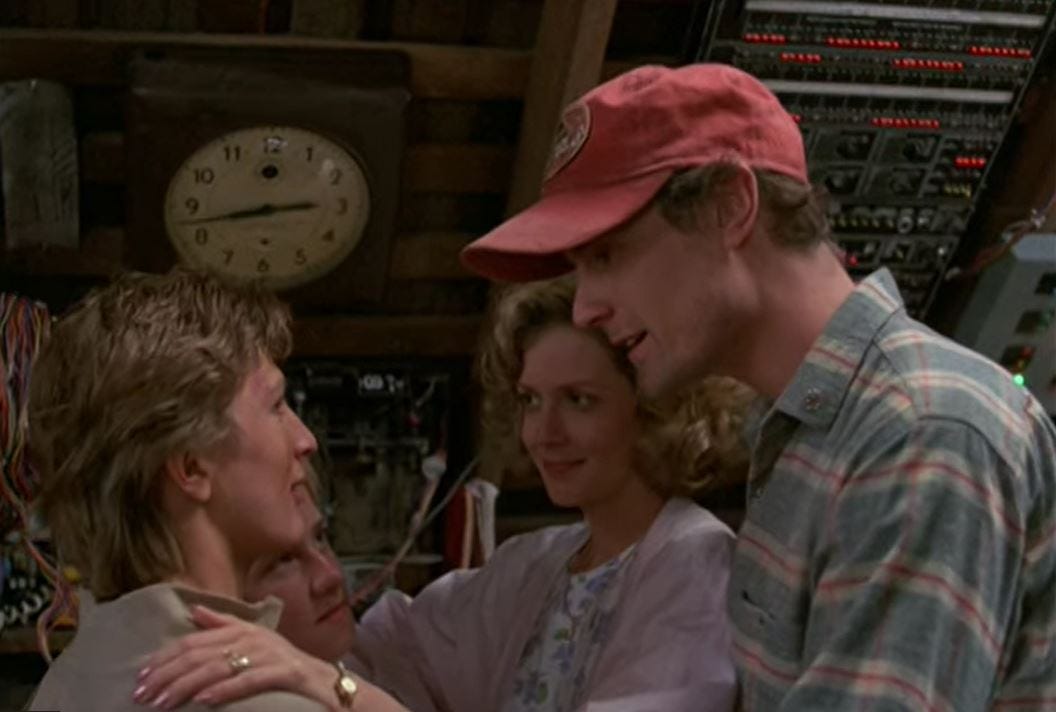
Hey, wait! I get it! French class!
Thanks for this review! I never saw these movies, but I wanted to say that Matt Frewer is not a small guy--he's 6' 3", and towers over his costars in the roles I've seen.